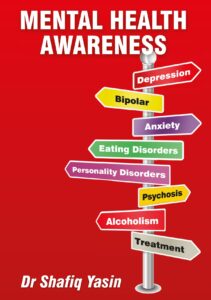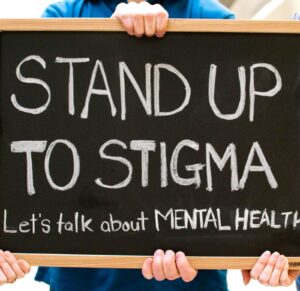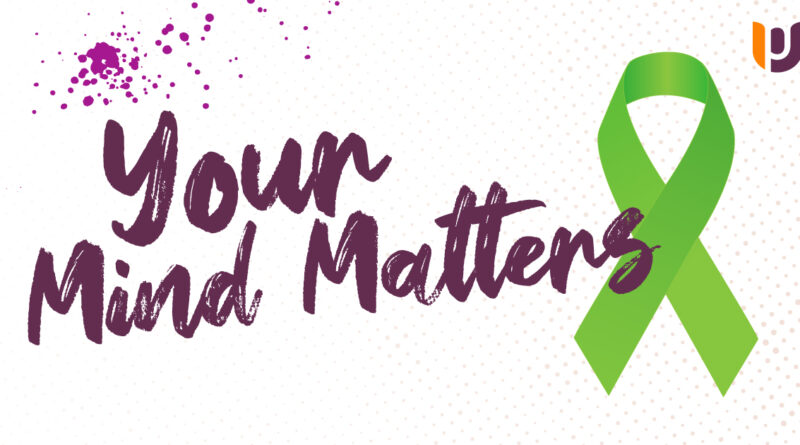India’s Way To Resolve Its Mental Health Crisis
Indians have poured scorn on Mental Health and the Illnesses attached to it ever since the beginning and continue to belittle it even today. Considering the very recent statistics procured by the WHO, India is close to the onset of its mental health breakout. More than 150 million people are suffering from mental health disorders and need medical interventions. However, the country lacks sufficiently trained mental health professionals and is leashed under the stigma associated with endless Mental Health disorders; depression, anxiety, schizophrenia, mood disorders, personality disorders, eating disorders, and various other psychological disorders related to symptoms of psychosis.
It’s been high time we realize the gravity of the situation and take measures to resolve the crisis of the hour.
The most important question is HOW?
IS THERE ANYTHING THAT WE INDIANS CAN DO TO GET OURSELVES OUT OF THIS SEA OF DISTRESS? Yes!!
The commencement of the following on a large scale and a gradual rise in its practice will certainly get India to a better place considering its Mental Health crisis.
A)BE AWARE AND ALOUD:
How often do we speak about going through the episodes of grief and sorrow out loud? How aware do you think is our Nation about the stream of psychological disorders and the reality of Mental Illnesses? Do your parents believe in ‘depression’ and ‘anxiety’ or they too call it a fancy gen z tantrum-throwing? At worst, a large part of our nation yet believes these to be a sign of weaklings.
We need to shove facts to the adult generation. They need to read about the reality of mental health sicknesses. Psychological disorders, it’s causes and symptoms should be read and reread by everyone. Magazines, Newspapers, and Social Media should take an initiative to consciously put up real facts and cases. This will increase the awareness of the citizens and encourage them to seek help. Awareness of Mental Health Disorders, will not only build an active society but will also make people more kind and empathetic towards one another.

B)START A CONVERSATION
How often do you think you can speak when you’re not well ‘mentally’? When your body slows down but you can’t point out the physical symptoms, but you don’t feel good. How often are we allowed to state ‘mentally incapable’ as a reason valid enough for our absence? This isn’t changing till each one of us decides firmly to be the pioneers of change. To be the narrators and start a conversation, irrespective of the stigma and judgments surrounding us.
Sharing and stating your journey through cases of disorders help others dealing with the same issues navigate themselves in a good direction. It instills a sense of hope of an end as a possibility. Moreover, conversations are a key to destigmatize mental health. They make an individual feel comfortable and supported irrespective of their problems and difficulties. Conversations in the schools and colleges, at home, can help the way we raise our youth. Moreover, it gives them the liberty to express themselves without fear of accusations and judgments.
C)MENTAL HEALTH AS A PART OF THE EDUCATION :
Schools and Colleges should include Mental Health disorders as a part of their curriculum. In fact, the inclusion of psychology as a compulsory subject of study is the only way to boost the awareness around us. Government and private companies should facilitate workshops and webinars providing their employees with as much knowledge as possible. Studying about it, from a young age will lead to better growth and an enhanced emotional quotient amongst the youth.
D) ACCEPTANCE OF SUFFERING MENTAL HEALTH:

Most of the citizens of the nation are either in delusions themselves or they believe the sick to be deluded. The elder generation is so blatant and apathetic towards the mentally ill. This leads them to isolate the sick person and constantly mock them. Perhaps, blame them for being the ‘attention seekers’.People are yet hesitant to approach psychotherapists and consult counselors. We are far from learning and realizing the prominence of mental health disturbances. Thereby, making acceptance of these mental conflicts even tougher. Acceptance of ailments and acceptance of therapy as its solution is the key antidote to reduce the flowing numbers of admissions at mental hospitals and the increased death rates due to suicides.
E)DESTIGMATIZATION OF MENTAL HEALTH AND DISORDERS
The intensity of the stigma bound to the mental health disorders such as depression, anxiety, schizophrenia, personality disorders, and mood disorders is beyond high. A large section of the country isn’t open to calling out the prevalence of mental disorders in themselves or their dear ones. The process of destigmatization is also going haywire at places leading to incorrect glorification. We have begun to use words such as ‘depressed’, ‘OCD’, ‘maniac’ as adjectives in an attempt to normalize mental health disorders. However, this

the practice of unnecessary usage of psychological terminologies dilutes its significance. On the contrary, it invalidates the trauma of the one suffering it in reality.
F)BETTER JOB OPPORTUNITIES:
A solid measure to resolve our mental health crisis is to promote and respect the MH professionals. Offer better opportunities, budgets, and facilities to reach out to the nation. The government should take up a concrete responsibility to enhance the mental health status of the citizens by considering it important enough. Guiding the country about it, and promoting measures to improve it.
With fortitude, grit, and unity we can come together and make India a better place for our mental health. Moreover, the collaborative community efforts will bring awareness and reduce stigma. It will also lead to better availability of professionals and improved mental health conditions. It will promote a noticeable decrease in suicide rates and the number of people who don’t receive help when needed.
◾If your friends don’t seem to be okay, be there for them.
◾If your family and peers are unaware, educate them.
◾If you do not feel okay, call it out and reach out for help.
◾Use your social media to reduce the stigma around mental health.
◾If you belong to any position that can cause an impact, use your power and begin the chain that brings the necessary change.





🙌Glad someone talked about this
Perfectly right.